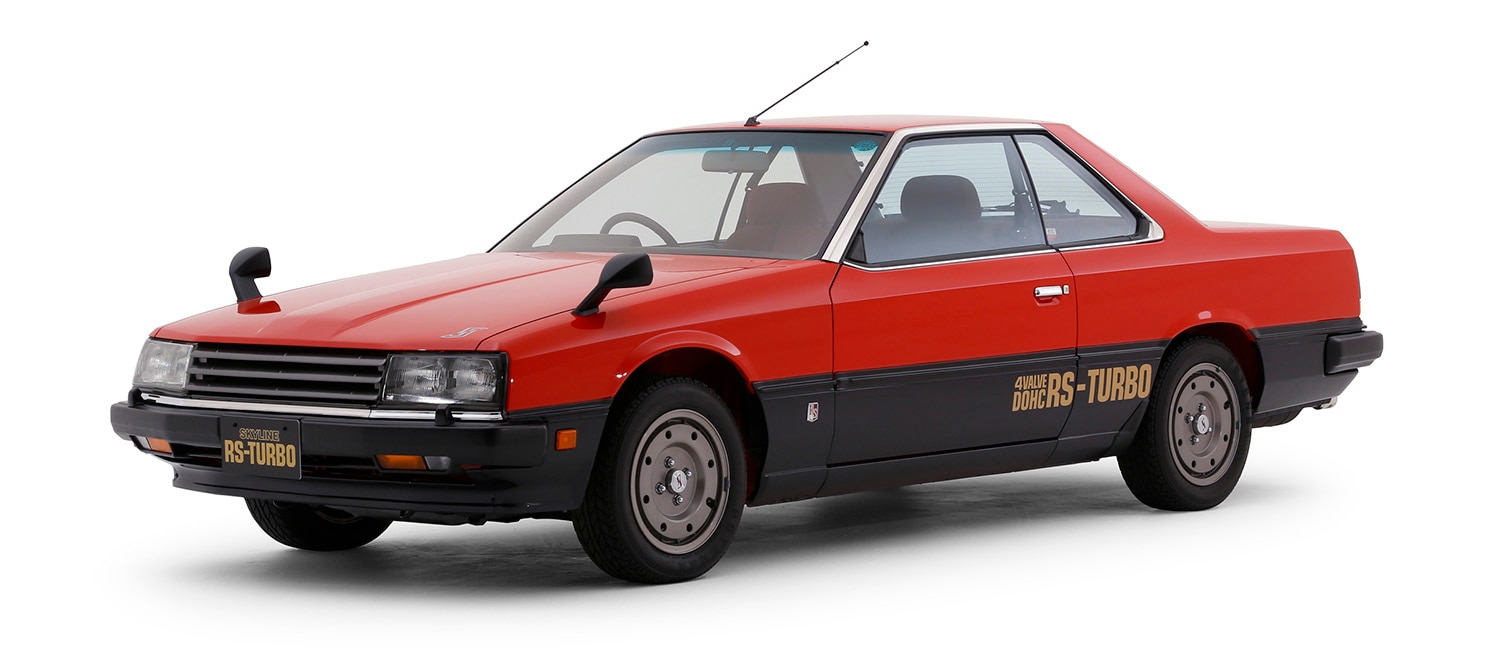How to Buy an Already-Imported Car in the U.S.
Just because a car is here doesn't always mean you can get it registered easily.
 Nissan
Nissan
Article QuickTakes:
There are plenty of fascinating vehicles that have never been sold in the United States that you may still see driving on U.S. boulevards and back roads. If you're interested in cars that were only sold overseas, you may not have to actually go overseas to get one. Instead, you might be able to locate, buy, and register one that's already here.
What follows is intended to be a high-level guide to buying and registering a vehicle that's already been imported to the U.S. It's worth noting that all 50 states — and many counties within those states — have differing rules on what vehicles can be titled. Speaking as someone who's gone through this process, I've found it critical to contact the local registration or titling offices (the same place in many states) to find out what forms and steps are necessary. Before you commit to buying a car, it's worth calling or even visiting those local offices to be certain you understand what's required for the vehicle you want to purchase.
 Nissan
Nissan
Buying an Already-Registered Vehicle
One of the easiest routes to owning and driving a non-U.S.-market vehicle is to get one that is already titled and registered in your own state. If you aren't buying a vehicle directly from someone local who's already done the titling and registration work, there's also the option of an online vehicle-auction business such as Bring a Trailer. That site occasionally sells imported cars and generally lists the U.S. state in which the title is registered when doing so.
If you live in a state that requires a safety and/or emissions exam, the vehicle's earlier testing information is likely already in that state's database. That said, consider contacting your local vehicle-registration office about details for transferring ownership even if the car is already registered in your state — you want to be sure you have the most up-to-date information.
If you find the imported car of your dreams but it's registered in another state, you will likely have to deal with a more complicated registration process. The vehicle should come with a legitimate U.S. title, but registration can be problematic, because the car may not meet your local emissions or safety standards. Presenting the registration office with an overseas vehicle serial number (as opposed to the U.S. 17-character vehicle identification number, or VIN) might also make their computers throw up an error — the vehicle may not qualify (or may appear not to qualify) for your local safety and emissions requirements.
These situations vary greatly depending on where you plan to register the car. For instance, all 254 Texas counties require a safety inspection, while just 17 (admittedly, some of the most populous) require an enhanced vehicle-emissions test.
 Mitsubishi
Mitsubishi
The Problems With Title-Only or No-Title Vehicles
As we go from the easiest to toughest circumstances for imported-car registration, next is the case of an overseas-market vehicle that has gone through the importation and customs process and comes with a good bill of sale. These are often the circumstances involved when U.S. importing companies sell cars: You get a vehicle you can prove you own, but you'll be starting from nearly zero when it comes to getting it registered.
For example, Duncan Imports & Classics, which claims to have North America's largest inventory of Japanese vehicle imports, says although it ensures the automobiles it brings into the U.S. have gone through the proper federal and state (in its case, Virginia) legal processes, customers need to check out specific titling regulations with their local vehicle-registration office.
There are a few other scenarios you might encounter when acquiring an already-imported car, but the process of registering such vehicles is likely going to be even more labyrinthine. The following two situations would probably be extremely difficult to handle unless you have specialized experience with the import process:
- A vehicle that has made it through U.S. customs and has an overseas title and bill of sale but nothing else. You'll probably have to do all of the initial titling legwork yourself, which can be a daunting task. Additionally, the bill of sale wouldn't be made out to you, because you're not the one who bought and subsequently imported the car to the U.S.
- Titling and registering an overseas-market vehicle that entered legally as a personal-use vehicle on the one-year duty waiver. Such a vehicle is likely no longer legal in the U.S. and needs to be exported.
 Fiat
Fiat
What You May Need to Register Your Vehicle
Ideally, you'll have researched the rules about overseas-market vehicles in your state and county before buying, so you'll be sure it's possible to register the car where you live. When you walk into your local vehicle-registration office, try to be patient. The government workers there may have had to deal with difficult customers before you, and, on top of that, imported vehicles can lead to complex bureaucratic situations.
In my experience, some offices can provide you with a checklist of the necessary forms. That said, even if you don't have a comprehensive list of what paperwork is required, it's often helpful to simply bring along every piece of paper that has anything to do with your new vehicle. That includes the following (if they apply to your situation):
- Bill of sale from the previous owner
- Title, whether from a U.S. state or otherwise
- Entry forms from U.S. Customs and Border Protection as well as the Environmental Protection Agency
- A vehicle identification number verification form
- Results from an emissions test
You may not successfully get to the next step in the registration process on your first visit to the titling office. There may be many steps, depending on where you are located — such as an inspection to confirm emissions system compliance or a VIN inspection by an officer of the law. Communicate politely with the office employees, remember your vow of patience, and don't give up.



